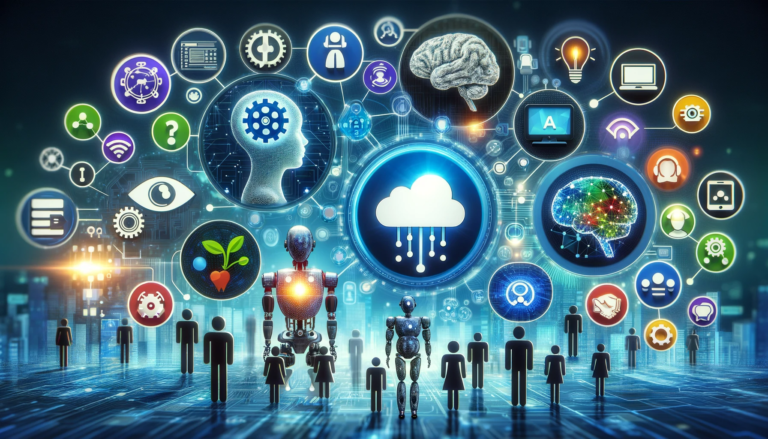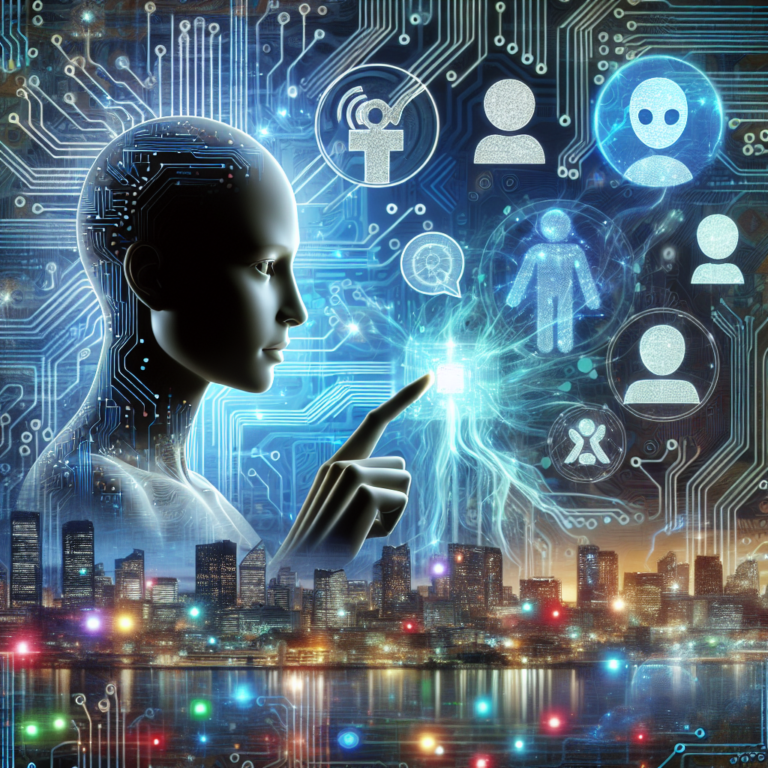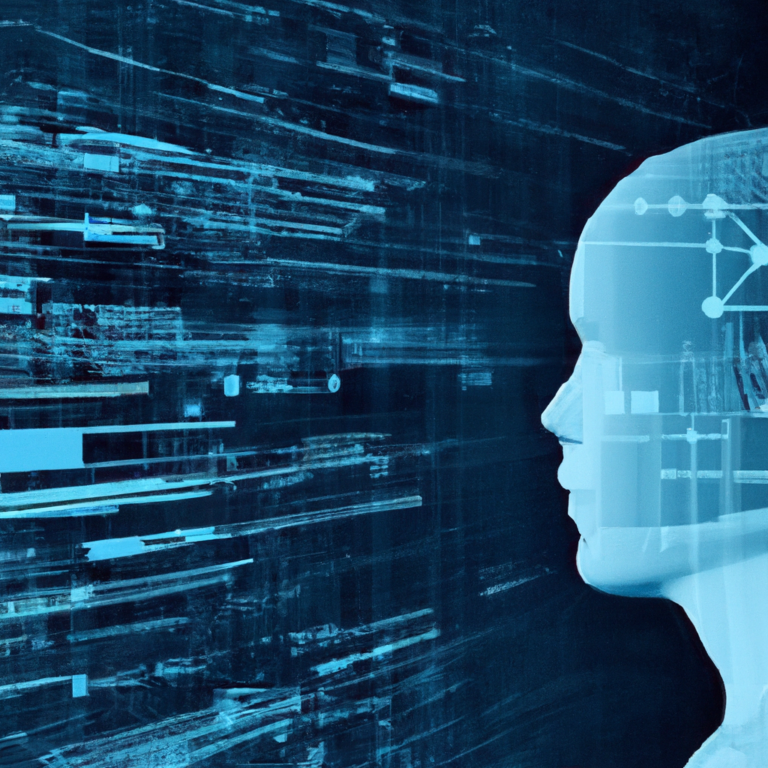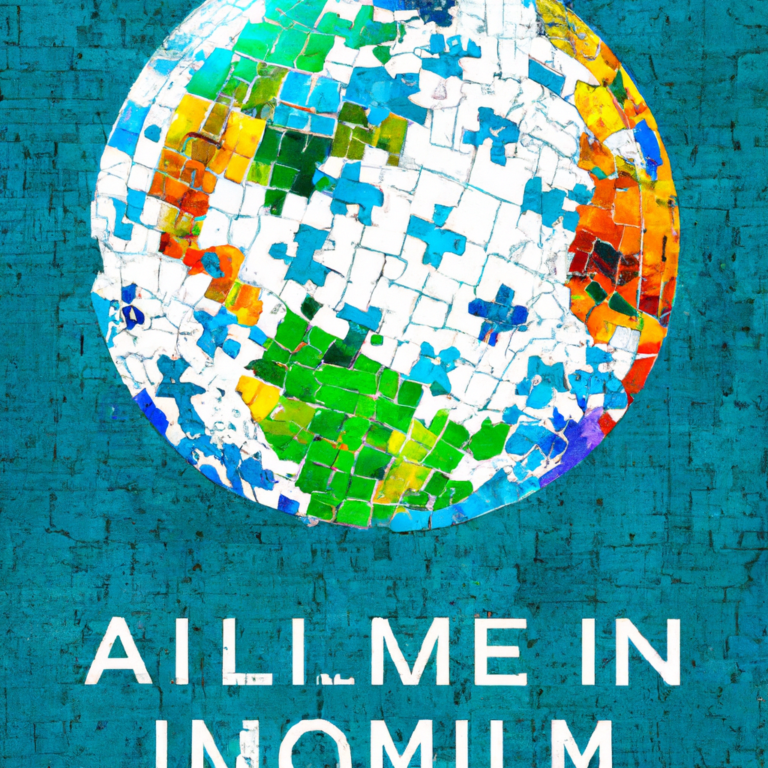
In today’s world, technology continues to revolutionize various industries, and the music industry is no exception. With the advancements in Artificial Intelligence (AI), individuals now have the incredible ability to use AI to compose music. This revolutionary technology offers a new level of creativity and convenience for musicians, enabling them to explore new and innovative musical compositions. Whether you’re a professional musician or an aspiring artist, harnessing the power of AI to compose music can open up a whole new world of possibilities.
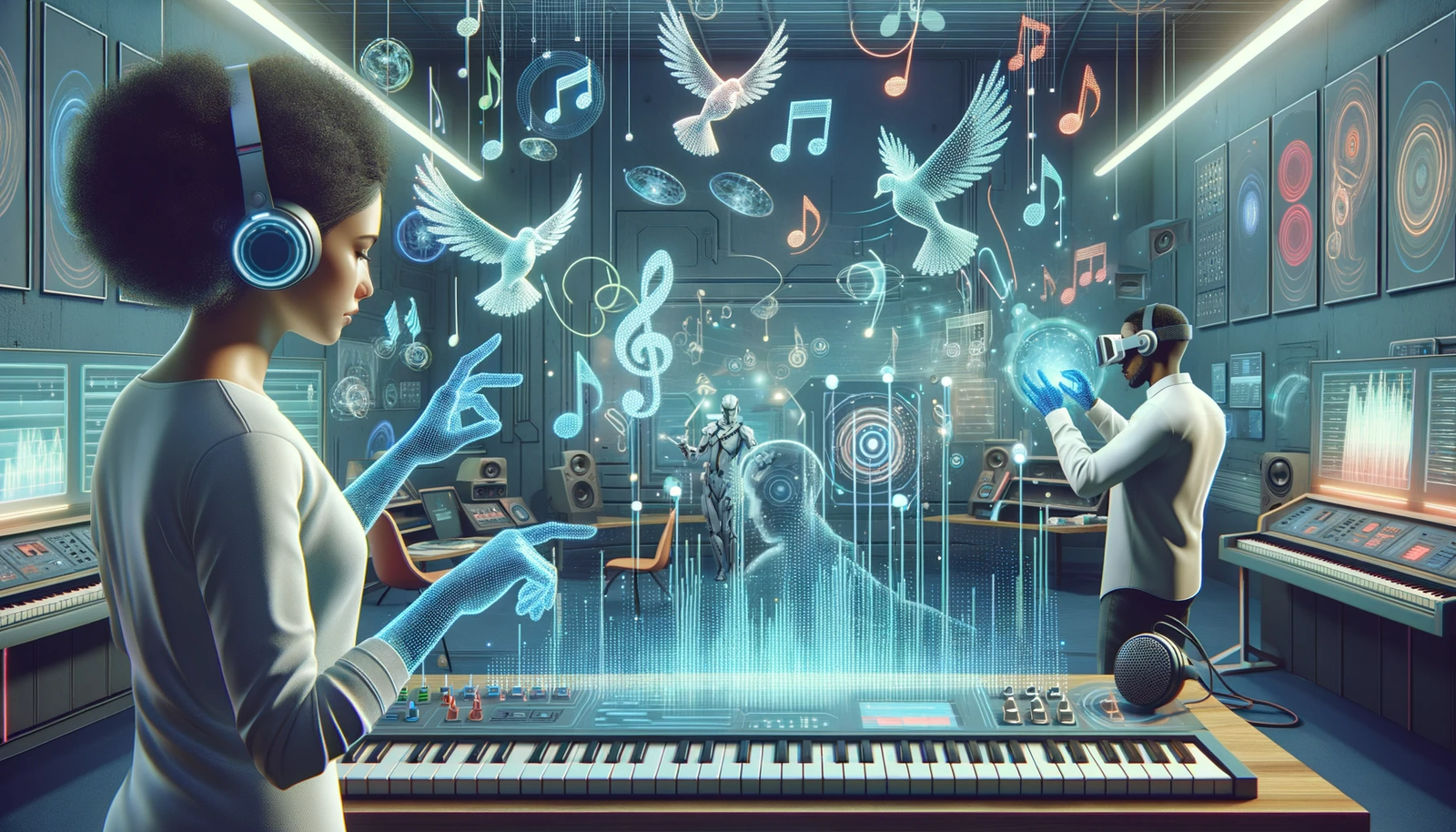
Understanding AI in Music Composition
What is AI?
AI, or Artificial Intelligence, refers to the development and implementation of computer systems that can perform tasks that typically require human intelligence. These systems are capable of learning, reasoning, and problem-solving, enabling them to analyze data and make informed decisions. AI technology has revolutionized various industries, and music composition is no exception.
What is music composition?
Music composition is the process of creating an original piece or arrangement of music. It involves the creative exploration and combination of melodies, harmonies, rhythms, and other musical elements to evoke emotions and express ideas. Traditionally, music composition has been limited to human composers who rely on their training, experience, and intuition to craft their works. However, with the advancements in AI, composers now have the opportunity to explore new possibilities and push the boundaries of creativity.
AI in music composition
AI in music composition involves utilizing machine learning algorithms and techniques to generate music autonomously or in collaboration with human composers. These AI systems can analyze vast amounts of musical data, identify patterns, and generate compositions based on predefined rules or learned patterns. By leveraging the power of AI, musicians can explore new avenues of creativity, enhance their composition process, and collaborate with intelligent systems.
The Benefits of Using AI in Music Composition
Increased efficiency
One of the most significant benefits of using AI in music composition is increased efficiency. AI systems can process and analyze vast amounts of musical data at a much faster pace than humans. This allows composers to generate ideas, experiment with different melodies and harmonies, and refine their compositions in a fraction of the time it would take them manually. As a result, the creative process becomes more streamlined, enabling musicians to produce high-quality music in a shorter timeframe.
Exploring new creative possibilities
AI opens up a world of new creative possibilities in music composition. By analyzing vast databases of existing music, AI systems can identify musical patterns, styles, and trends. This knowledge can be used to generate music that is in line with various genres or evoke specific emotions. AI can push creative boundaries by creating compositions that human composers may not have thought of, leading to unique and innovative music that captivates audiences.
Enhanced collaboration
AI can also enhance collaboration between human composers. By acting as virtual creative partners, AI systems can generate alternative melodies, harmonies, or rhythms that human composers may not have considered. This collaborative process allows composers to explore different ideas and perspectives, leading to richer and more diverse music compositions. Additionally, AI can act as a valuable tool for composers to receive real-time feedback on their compositions and make improvements based on the AI-generated suggestions.
Getting Started with AI Music Composition
Choosing the right AI music composition tool
When venturing into AI music composition, it is essential to choose the right tool for your needs. There are various AI composition software, platforms, and plugins available, each offering different features and functionalities. Before making a decision, consider factors such as the algorithm used, compatibility with your music production software, user-friendliness, and support for customization. It is also beneficial to read reviews and do thorough research to ensure the tool aligns with your creative vision.
Training the AI model
Once you have chosen the AI music composition tool, you will need to train the AI model. Training involves feeding the system a large dataset of existing music samples. The AI system will analyze this data and learn the musical patterns, structures, and styles. The quality of the training dataset can greatly influence the AI’s ability to generate suitable compositions. It is important to curate a diverse dataset that encompasses a wide range of musical genres and styles to ensure the AI model produces music that aligns with your desired outcomes.
Preparing input music samples
Before generating AI-composed music, it is crucial to prepare your input music samples. These samples will serve as the foundation for the AI model to generate compositions. You can select samples from your own compositions or use existing music that aligns with your desired style or genre. It is also possible to give the AI model specific instructions or constraints to guide its composition process. By curating and preparing high-quality input music samples, you can influence the AI’s output and create compositions that resonate with your artistic vision.
Tips for Using AI in Music Composition
Experiment with different AI algorithms
When using AI in music composition, it is beneficial to experiment with different AI algorithms. Different algorithms can produce varying results, generating compositions that differ in style, complexity, and emotional impact. By exploring multiple algorithms, you can find the one that best suits your creative needs and helps you achieve the desired musical output. Don’t be afraid to try different approaches and iterate on the AI-generated compositions to refine them further.
Augmenting AI-generated music with human touch
While AI-generated music can be impressive, it is essential to add a human touch to the compositions. AI is a powerful tool that can assist and inspire, but it may lack the emotional depth and subtleties that human composers bring to their work. To enhance the musicality and authenticity of AI-generated music, consider adding live instrument recordings, human vocals, or manually adjusting certain elements of the composition. The combination of AI-generated music and human creativity can result in truly remarkable compositions.
Balancing AI assistance with personal creativity
Using AI in music composition is about finding the right balance between AI assistance and personal creativity. AI can offer suggestions, generate ideas, and streamline the composition process. However, it is important to maintain your own artistic vision and not rely solely on AI-generated compositions. Your personal touch, emotions, and storytelling abilities are what make your music unique. Use AI as a tool to augment your creativity rather than replacing your creative instincts, ensuring that your compositions remain true to your artistic style.

Avoiding Common Pitfalls in AI Music Composition
Over-reliance on AI-generated compositions
One common pitfall in AI music composition is over-reliance on AI-generated compositions. While AI can generate impressive music, relying solely on AI for composition may result in a lack of personal expression and originality. It is important to strike a balance between utilizing AI assistance and infusing your own creative ideas and emotions into the compositions. Remember that AI is a tool, and your unique artistic voice should shine through in your music.
Lack of originality
Another challenge in AI music composition is the potential lack of originality. AI systems are trained on existing music, which can influence the compositions they generate. To overcome this challenge, it is crucial to curate a diverse dataset during the AI training process and actively experiment with different AI algorithms. Additionally, adding your personal touch, creative twists, and unique elements to the AI-generated compositions can help maintain originality and ensure your music stands out.
Legal considerations
AI music composition also raises legal considerations, particularly regarding copyright and ownership. When using AI tools and algorithms, ensure that you have the necessary rights and permissions for the input music samples and any AI-generated compositions. It is crucial to understand the legal implications and seek legal advice if needed to avoid copyright infringement or disputes over ownership. Respecting intellectual property rights is essential in maintaining ethical practices in AI music composition.
Ethical Implications of AI in Music Composition
Copyright and ownership
AI in music composition raises questions about copyright and ownership. When an AI system generates music, determining who owns the rights to the compositions can be complex. The legal frameworks surrounding AI-generated music are still evolving, and it is important to comply with copyright laws and seek appropriate licenses when distributing or monetizing AI-generated compositions. Transparency in acknowledging the role of AI in the creation process and giving proper attribution to human composers involved is crucial in mitigating any legal or ethical concerns.
Plagiarism concerns
Plagiarism is a significant ethical concern in AI music composition. AI systems have the ability to analyze existing music and generate compositions that may resemble or mimic well-known songs or melodies. It is the responsibility of composers to ensure that their AI-generated compositions do not infringe upon the intellectual property of others. Verifying the originality of AI-generated compositions, conducting thorough checks for similarities with existing works, and seeking legal advice can help mitigate plagiarism concerns.
Maintaining artistic integrity
AI in music composition can help streamline the creative process, but maintaining artistic integrity is paramount. Composers must ensure that their involvement in the composition process is meaningful and that their artistic vision remains at the forefront. AI should be seen as a collaborative tool that assists in the exploration of new possibilities and enhances creativity, rather than a replacement for human ingenuity. Ensuring that your compositions reflect your personal style, emotions, and intentions is essential in upholding artistic integrity.
Examples of Successful AI-Generated Music
AI-composed symphonies
AI has successfully composed symphonies that captivate audiences with their intricate compositions and emotional depth. Composers have used AI to generate orchestral pieces that rival the works of human composers. These AI-generated symphonies showcase the potential of AI in pushing creative boundaries and expanding the horizons of classical music.
AI-driven pop songs
AI has also made significant advancements in generating pop songs. By analyzing popular music trends and patterns, AI systems can generate catchy melodies, uplifting choruses, and engaging lyrics. Some AI-driven pop songs have even achieved mainstream success, blurring the lines between AI-generated music and human compositions.
Experimental electronic music
AI has been embraced by experimental electronic musicians who seek to push the boundaries of sound. By leveraging AI algorithms, electronic musicians can create intricate and unconventional compositions that challenge traditional notions of music. These AI-generated compositions often incorporate unique sounds and textures that are difficult to achieve through traditional composition methods.
Future of AI in Music Composition
Advancements in AI models
The future of AI in music composition holds exciting possibilities. As AI technology continues to advance, we can expect more sophisticated models that can generate compositions with even greater nuance, emotional depth, and creativity. The development of AI models that can understand and interpret human emotions or respond to real-time audience feedback may revolutionize the composition process, leading to more personalized and immersive musical experiences.
Human-AI collaboration
The collaborative potential between humans and AI in music composition will likely be further explored and developed in the future. Human composers can leverage AI as a creative partner, using its algorithms to generate ideas, explore new musical territories, and overcome creative blocks. This collaborative approach can lead to the emergence of new genres, innovative compositions, and unique fusion of human and AI creativity.
Changing music industry landscape
The integration of AI in music composition is bound to have a profound impact on the music industry. As more musicians adopt AI tools and techniques, the traditional concepts of music creation, licensing, and distribution may evolve. AI-generated music may find its place in various commercial applications, such as advertising, film scoring, or video game soundtracks. This may also give rise to new business models and revenue streams, creating opportunities for musicians to monetize their AI-generated compositions in different ways.
Conclusion
AI has revolutionized the music composition process, offering musicians new creative possibilities, increased efficiency, and enhanced collaboration. It is crucial for composers to choose the right AI tools, train the AI models effectively, and balance AI assistance with their personal creativity. While AI has its pitfalls and ethical implications, when used responsibly, it can lead to remarkable music compositions that captivate audiences and push the boundaries of artistic expression. As AI technology continues to advance, the future of AI in music composition holds exciting prospects, promising to reshape the music industry and unlock unprecedented creative potential. So, embrace the power of AI and embark on a journey of exploration, experimentation, and innovation in music composition.


